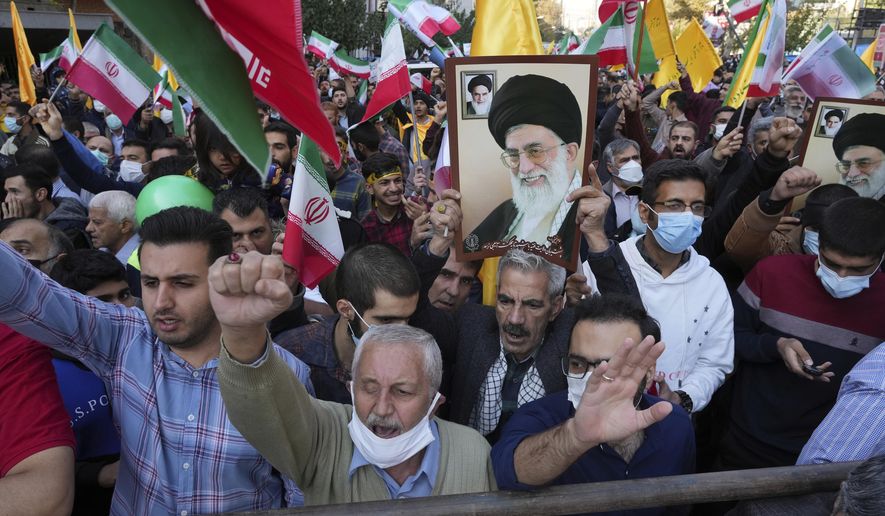Street protests in Iran against the theocratic regime are expected to intensify this week, with demonstrators on Sunday calling for a three-day mercantile strike ahead of a visit by hardline President Ebrahim Raisi to Tehran University.
The call for a strike by merchants to coincide with Iran’s “Student Day” on Wednesday sets the stage for a potential escalation of clashes between authorities and protesters amid some of the biggest anti-regime demonstrations in the Islamic republic in decades.
Sunday’s development, as reported by Reuters, came after state-run media reported that the theocratic government had abolished its morality police after months of unrest sparked by the death of a young woman detained for allegedly violating the country’s strict dress code.
Mahsa Amini, a 22-year-old Iranian of Kurdish origin, died Sept. 16 in the custody of the morality police, reportedly for flouting an Islamic head covering law for women. Protests during the months since have seen demonstrators shout anti-government chants and burn their head coverings.
There was widespread speculation Sunday that authorities had moved to abolish the morality police in a bid to try and appease demonstrators ahead of a major speech that Mr. Raisi is slated to give at Tehran University on Wednesday.
Secretary of State Antony Blinken said Sunday that it “could be a positive thing” if Iranian authorities have abolished the morality police in response to the protests.
When asked during an appearance on CBS’ “Face the Nation” whether such a move might bring about an end to the protests, Mr. Blinken responded: “That’s up to the Iranian people.”
“This is about them. It’s not about us, and what we’ve seen since the killing of Mahsa Amini has been the extraordinary courage of Iranian young people, especially women, who’ve been leading these protests standing up for the right to be able to say what they want to say, wear what they want to wear,” he said. “If the regime has now responded in some fashion to those protests, that could be a positive thing. But we have to see how it actually plays out in practice, and what the Iranian people think. This is about them, and it’s up to them.”
In a separate slate of developments, Iran’s state-run IRNA news agency reported that Iranian authorities executed four people on Sunday accused of working for Israel’s Mossad intelligence agency. The agency said three others received lengthy prison sentences.
IRNA reported that Iran’s powerful Revolutionary Guard announced the arrests of a network of people linked to the Israeli agency. It said the members had previous criminal records and tried to disrupt the country’s security.
Israel and Iran are regional archenemies and Iran occasionally announces the detention of people it says are spying for foreign countries, including the United States and Israel. Tehran does not recognize Israel and supports anti-Israeli armed groups across the region, such as Hezbollah and Hamas.
• This article is based in part on wire service reports.
• Guy Taylor can be reached at gtaylor@washingtontimes.com.




Please read our comment policy before commenting.